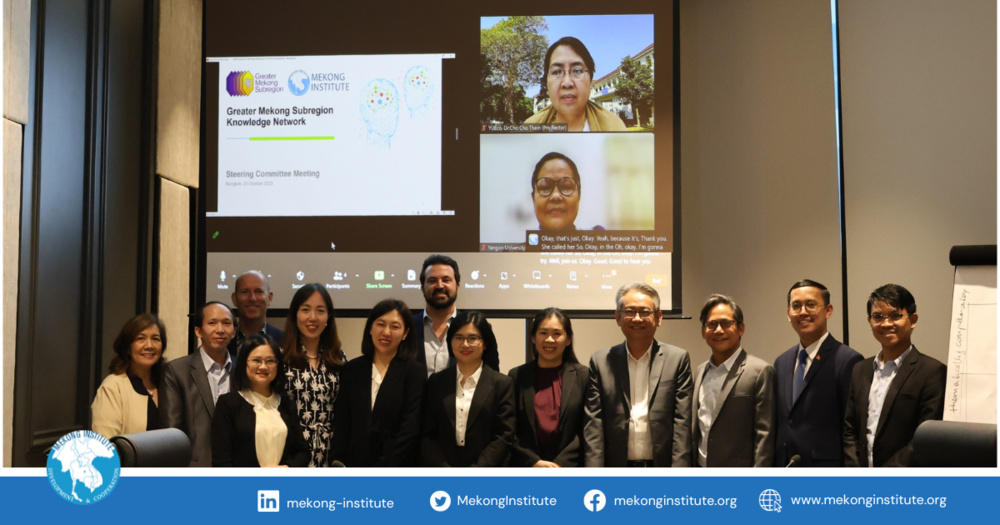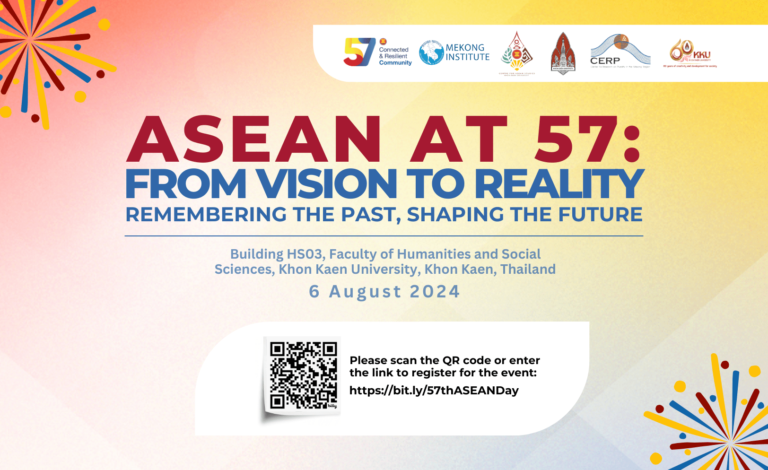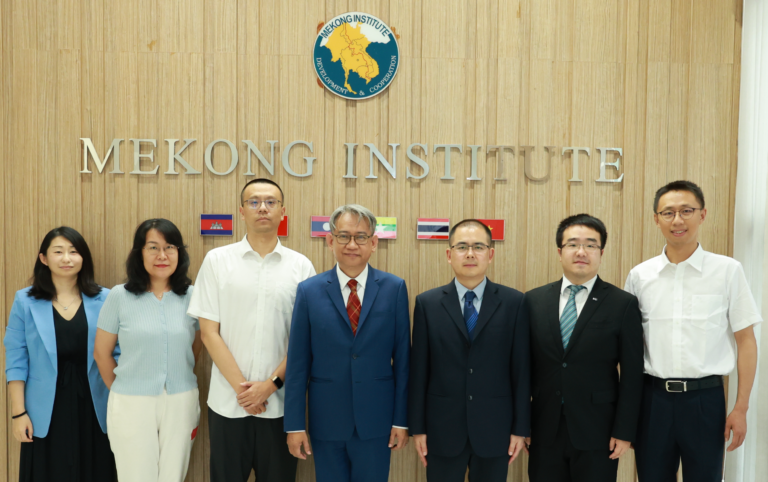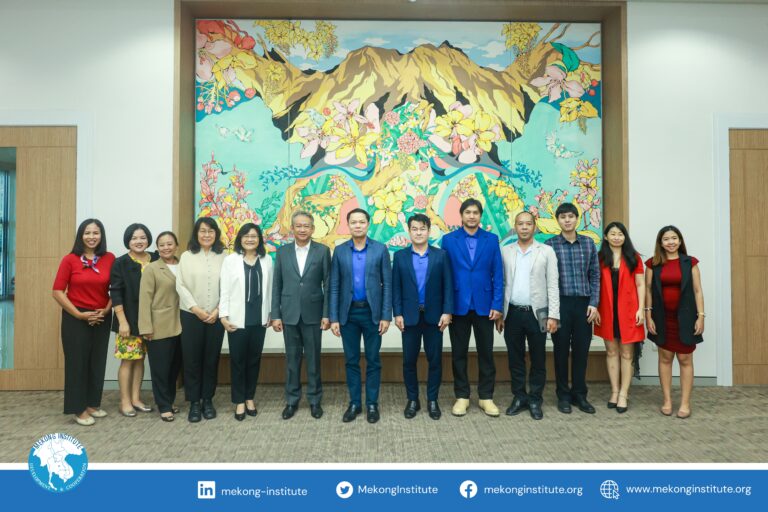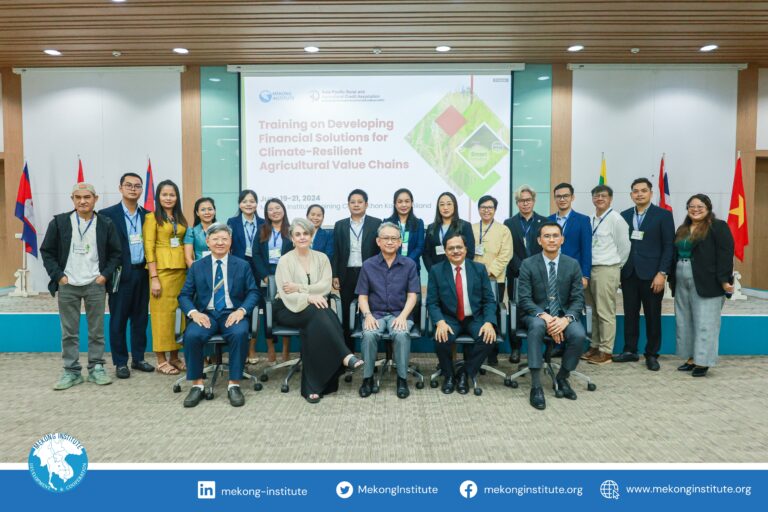Reinforcing its commitment to drive knowledge-based regional development in line with the GMS-2030 framework, the Greater Mekong Subregion Knowledge Network (GMS-KN) convened its 2nd Steering Committee (SC) Meeting supported and facilitated by the Mekong Institute (MI) and Asian Development Bank’s (ADB) GMS Secretariat in Bangkok on October 23, 2023.
High-level representatives from knowledge institutions, universities, and think tanks in GMS countries discussed priority sectors, themes, topics, and innovative approaches. These discussions formed a core component of the network’s stocktaking study, which was initiated at the 1st SC meeting held virtually on October 21, 2022.
Prof. Andreas Brandner, a globally recognized expert in knowledge management, led the stocktaking study, which included consultations with all country representatives between October 1 and October 20, 2023. The results of these consultations, confirmed and discussed by the participants during the meeting, highlight key focus areas: (1) Agriculture and Agritourism, (2) Cross-Border Trade and Logistics, (3) Environment, Green and Bio-Circular Economy, Climate Change, and Biodiversity, (4) Knowledge Society and Digitalization, (5) Energy, and (6) Post-COVID-19 Recovery.
In addition to these priority areas, the network identified innovative approaches to acquire, create, share, apply, capture, and manage knowledge. These include partnership development, knowledge services provision, knowledge product creation, digital knowledge and innovation hub establishment, and resource mobilization. The shared focus on a limited number of priority sectors indicates common challenges and priorities among GMS countries, setting the agenda for the next one or two years.
This gathering represents not just specific organizations but entire countries. The exchange of insights and innovative ideas here will be pivotal in advancing knowledge across the region, influencing policies and guiding critical sectors,”
Said Mr. Suriyan Vitchitlekarn, Executive Director of MI during the meeting.
Mr. Antiono Ressano, GMS Secretariat’s Principal Regional Cooperation Specialist, underscored the importance of the network’s value-adding approach to regional knowledge generation and utilization, ensuring that there is a real demand for the services and products that the network would aim to offer to governments and stakeholders.
The meeting also served as a platform for members to identify immediate, collaborative “low-hanging fruit” or activities that are easily achievable within the next few months. These activities encompass knowledge fairs, knowledge cafés, knowledge communities, knowledge briefs, and webinar series, which can be applied across various thematic areas.
Building on SC inputs reflected in the stocktaking study, MI and the GMS Secretariat are set to draft a 2-year work plan for the GMS-KN, including indicative activities, for submission to and endorsement of the GMS Leaders during the Senior Officials Meeting on November 21, 2023.
The GMS Economic Cooperation Program Strategic Framework 2030 also dubbed as GMS-2030, endorsed by GMS Leaders in September 2021, supports the establishment of the GMS-KN. The network is composed of knowledge institutes, universities, and think tanks, including MI as the Network Coordinator.


